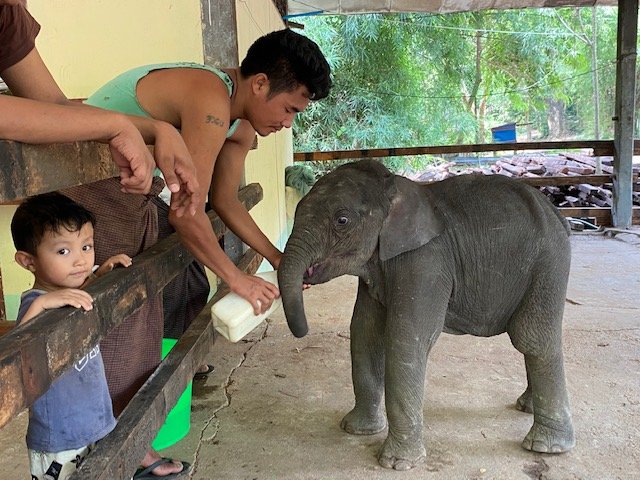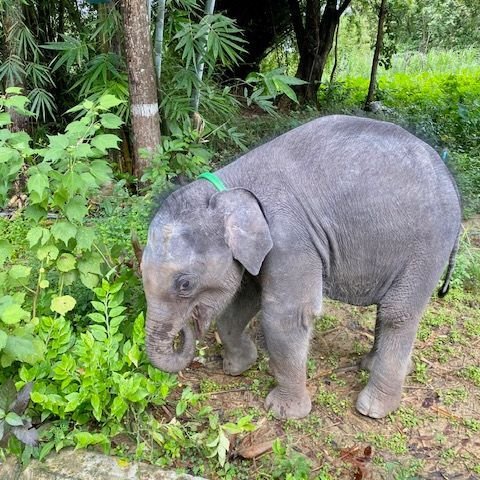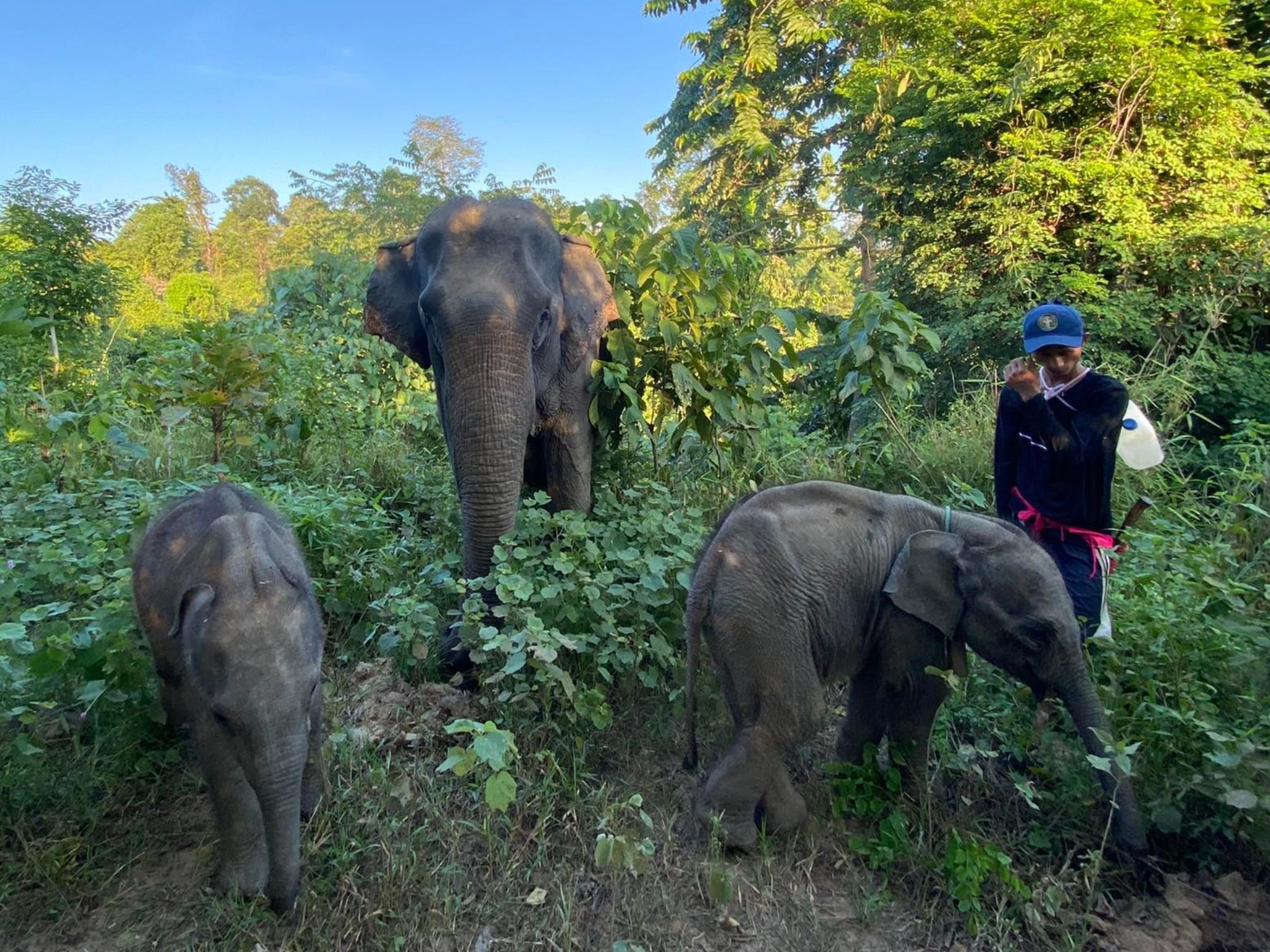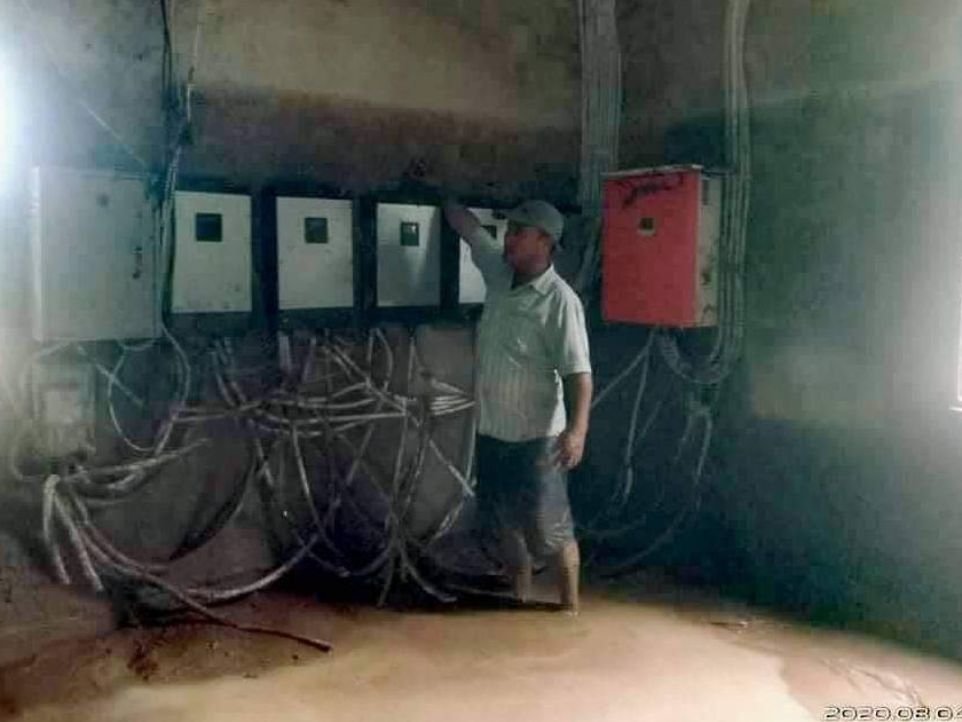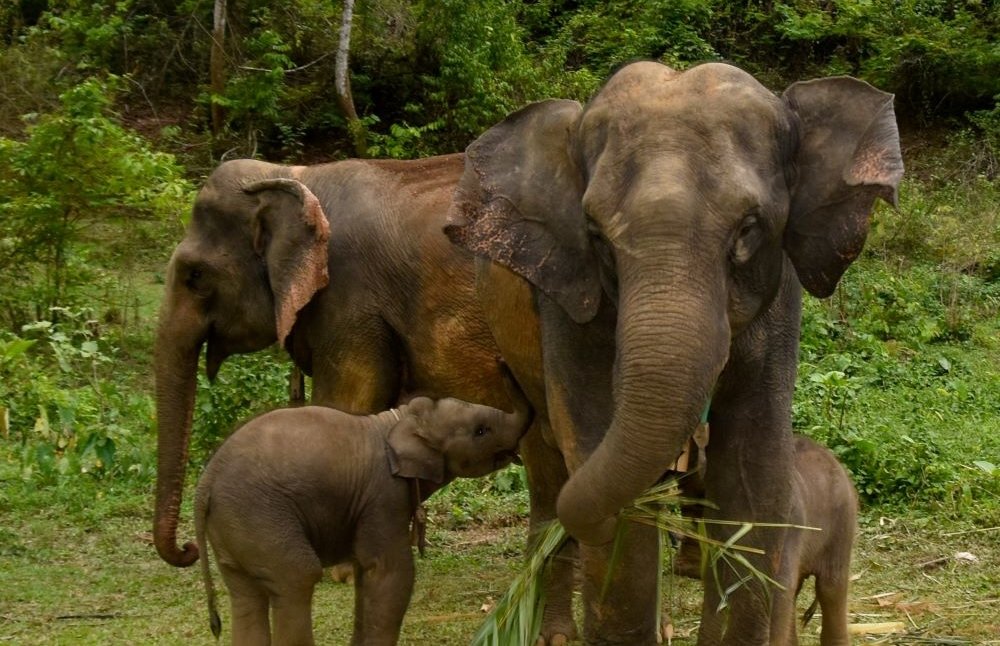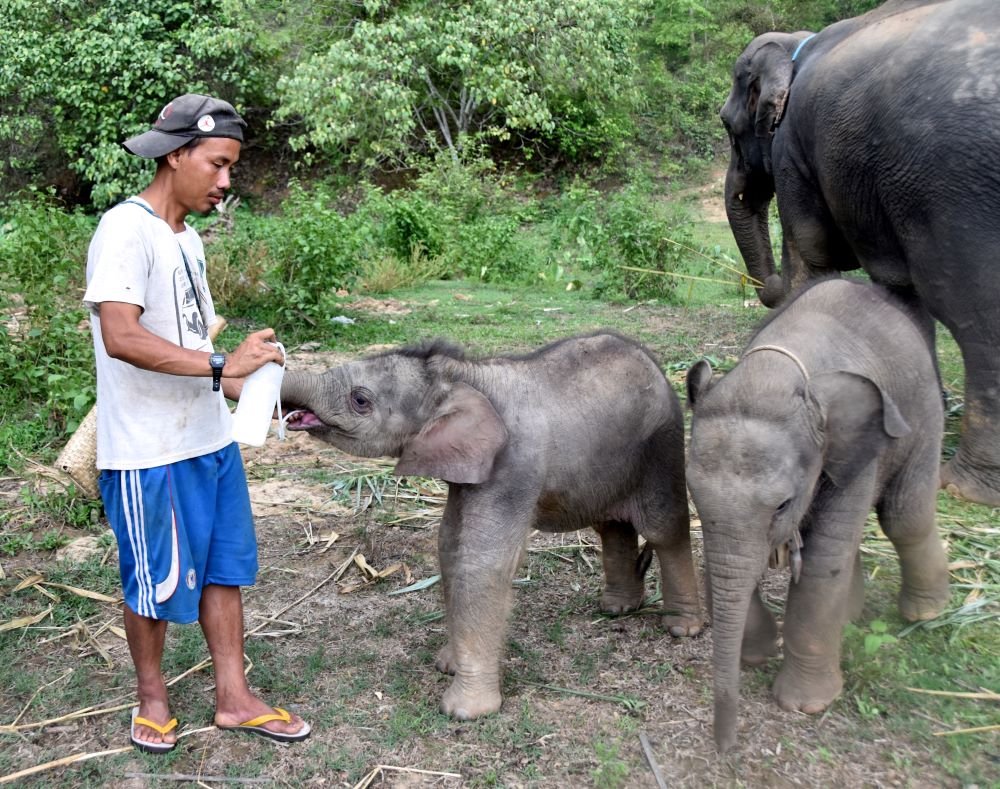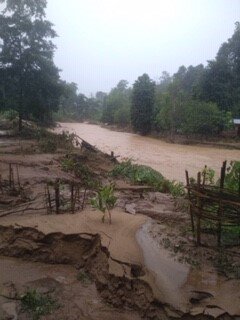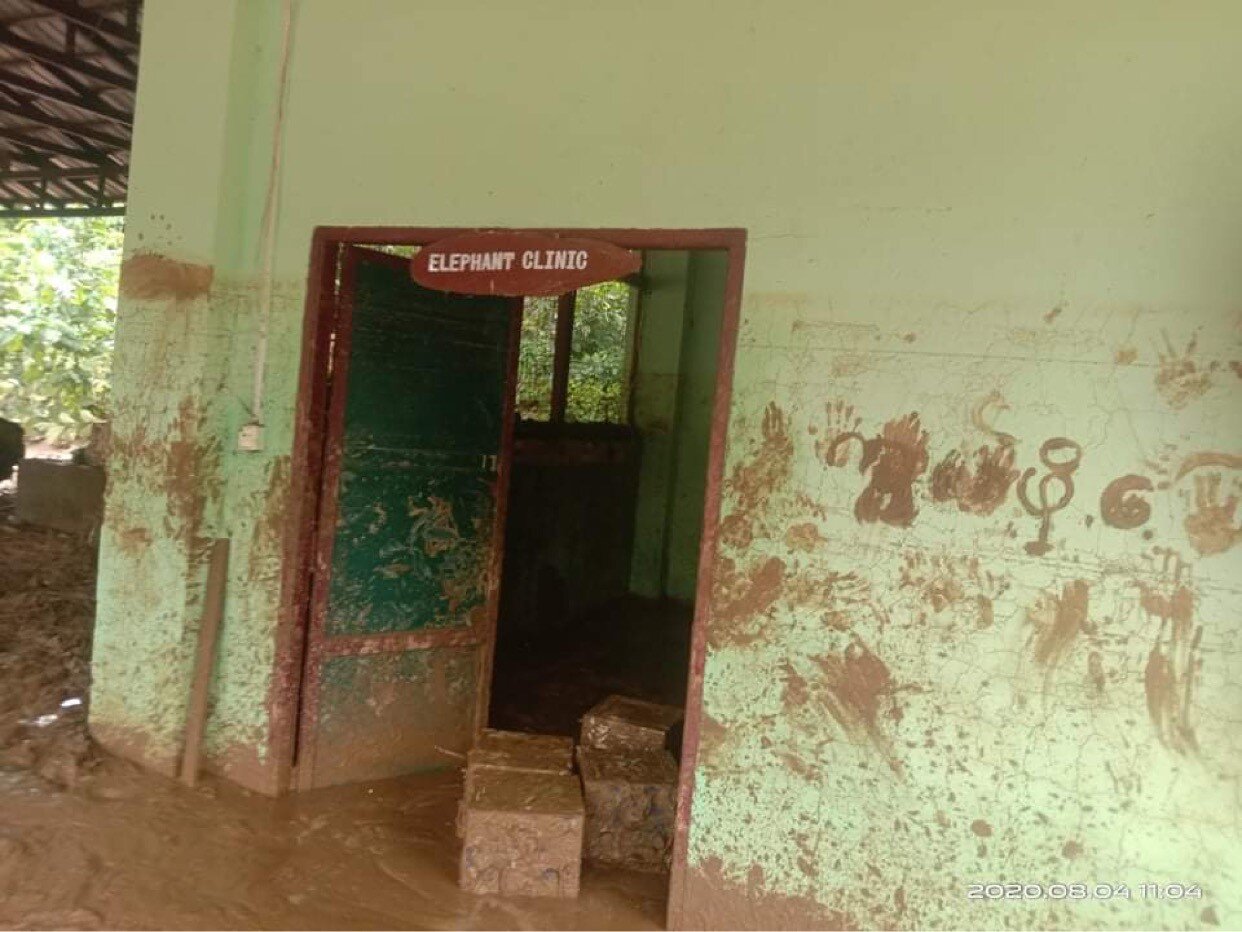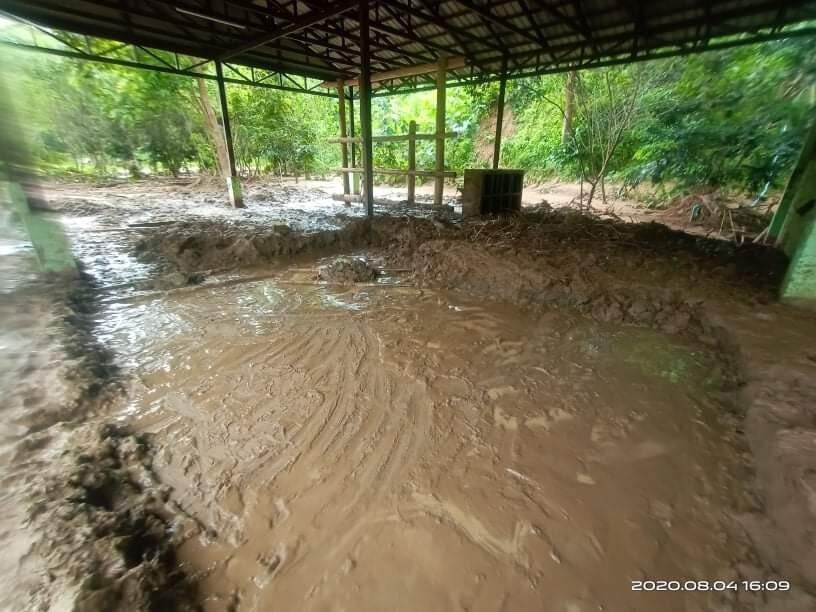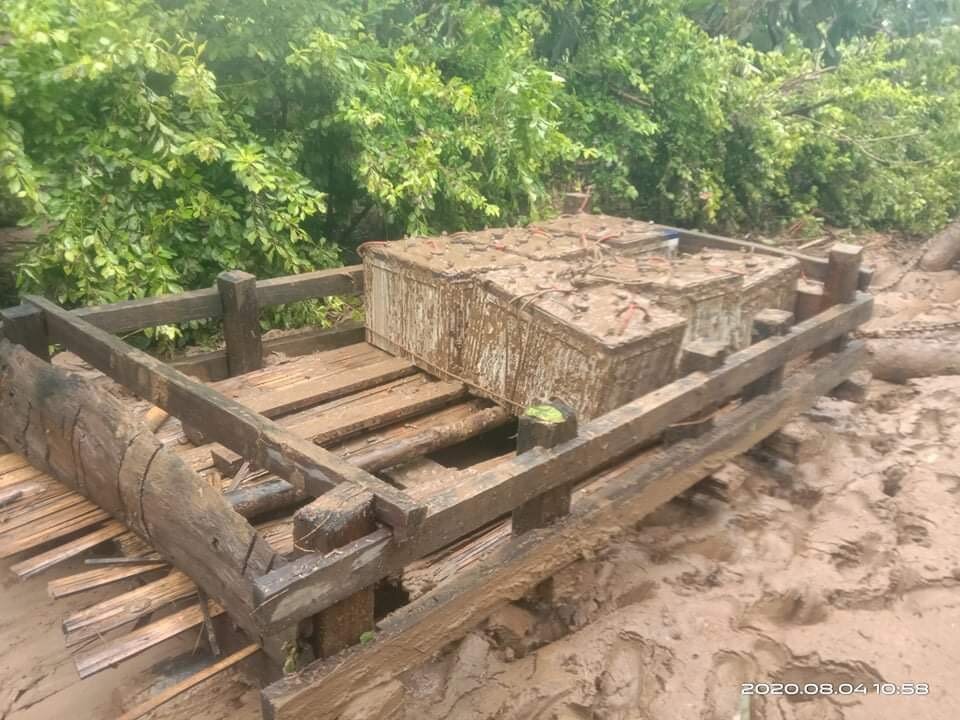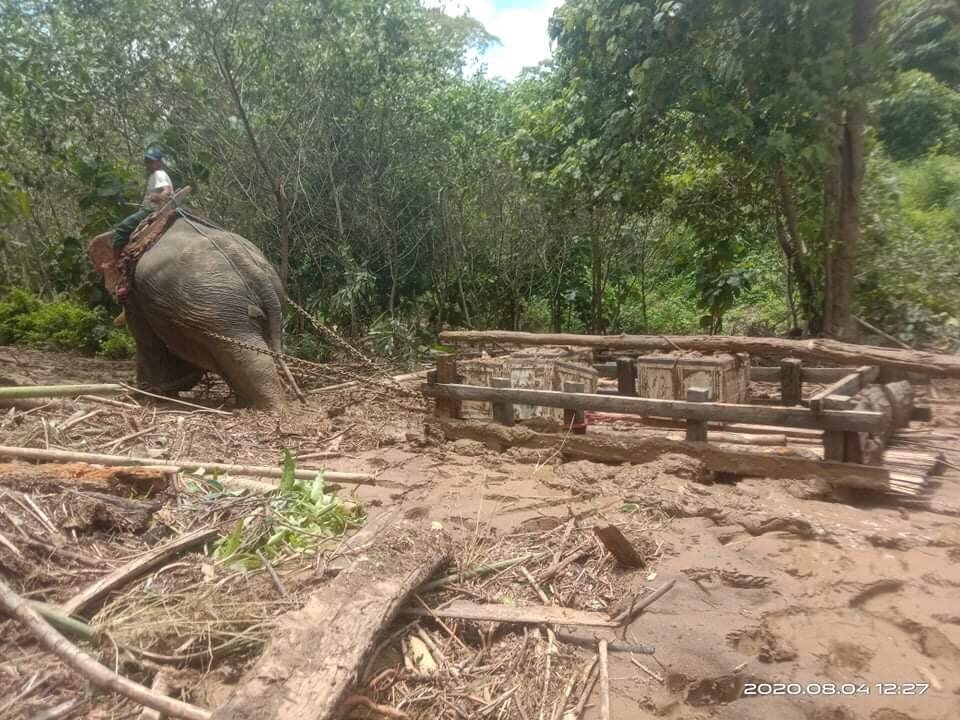Asian Elephant Health and Breeding Management Course in Thailand: Report for Asian Elephant Support
In the online part of the course (22 April to 24 May 2019), we learned about anatomy, physiology, nutrition, endocrinology, ultrasonography, anesthesia, restraint, and breeding and parturition management of Asian elephants.
In June we participated in a 5-day practical course in northern Thailand. The first day (10 June) we had lectures on health care management, endotheliotropic herpes virus, nutrition, plasma transfusion and blood cross match at Chiang Mai University in the Faculty of Veterinary Medicine.
The next days were practical training and demonstrations at the National Elephant Institute in Lampang, and Elephant Rehabilitation center, Pang Lah. On 11 June we had presentations on common health problems, tuberculosis, nutrition, and case studies in Sri Lanka and Thailand. From 12 to 14 June we studied rehabilitation, obesity, welfare, anesthesia, practiced using an elephant-like ultrasonography, semen collection, semen evaluation, estrus detection, reproductive hormone monitoring and calf management after parturition etc.
From this trip, we got the opportunity to hear a lot of elephant information and we got to share knowledge regarding elephant health care management from different regions. Therefore, your support is absolutely effective for us and for taking care of our elephants.
Finally, we would like to express our sincere thanks to Asian Elephant Support for your kind support for our trip. Without your support we could not benefit from this training.
Best regards,
Dr. Moe Win Tun
Dr. Zaw Min Htun

